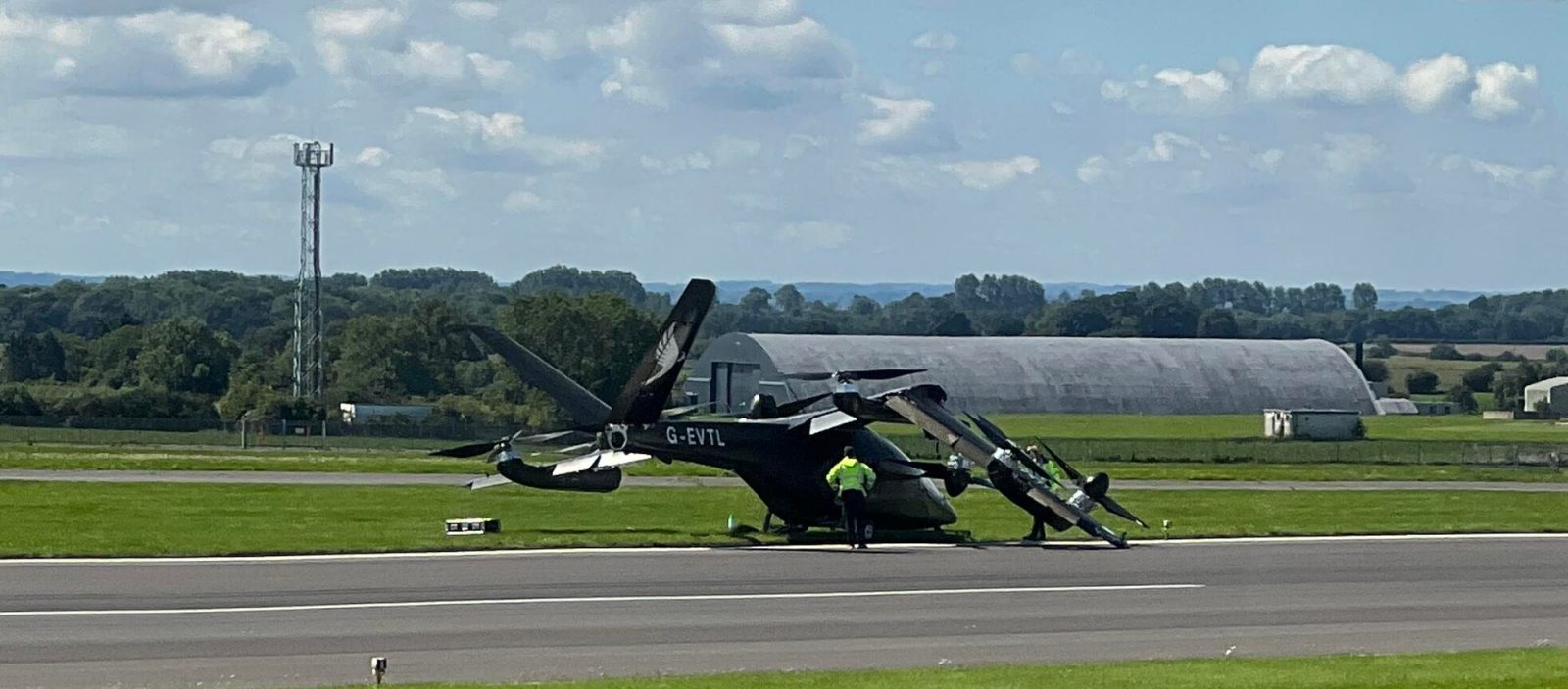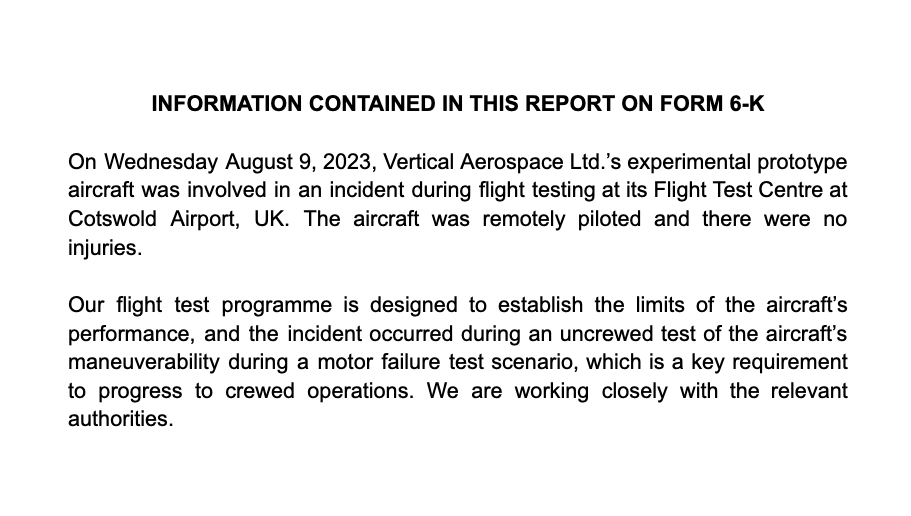
Nearly 48 hours after news began circulating that the prototype air taxi by UK advanced air mobility firm Vertical Aerospace suffered an accident, the company is still managing public response in the worst possible way – by acting like a slow-moving, tight-lipped, stodgy, “Mad Men” corporation rather than the creative, quick, and innovative startup it is.
Leading from behind has never been the hallmark of a successful, much less ground-breaking startup. Up until this juncture, Vertical had acquitted itself quite nicely in the planning, developing, and communication of its VX4 air taxi in the innovative, forward-looking mode of disruptive tech firms.
Read: UK air taxi maker Vertical reveals first untethered eVTOL test flight
But with word still swirling the craft was considerably damaged during an unexpected drop to the tarmac during a test flight, rather than taking the initiative and influencing response from upfront-center stage, the company is – by all outward appearances – hunkered down in a fetal position back in HQ.
Therein lies doom.
What is known thus far about Wednesday’s development is almost entirely unofficial. The most complete source of what it called “a crash” of the VX4 comes from UK aviation media Pilot. It cited an employee at the Cotswold Airport where Vertical was testing the craft saying the prototype air taxi dropped “from a height of approximately 20ft.”
That story included a photo of the slumped craft on the ground in front of a legacy plane. Subsequent images uploaded to social media showed significant damage to at least one wing and rotors (see main shot above).

That’s not as revealing as observers would like, yet more than enough to provoke the worst possible reactions to the news.
Vertical began tethered, crewed testing of the VX4 nearly a year ago, and just last month announced it had commenced untethered trials of the air taxi without pilots aboard. Those and other detailed breakthrough announcements contrasted the anemic information on the “incident” the company revealed in a required administrative filing to the US Securities and Exchange Commission.
The text of that reads as follows:

That Vertical is scrambling to deal with what would be, for any company, a traumatic failure of its emerging tech is understandable, even in the absence of human injury or collateral damage. But product setbacks, malfunctions, and even dramatic collapses are an integral part of startup DNA – even in outward-facing sectors like next generation and legacy aircraft development.
Indeed, when something being created is designed to become as integral to daily life and movement as air taxis, firms need to be especially pro-active, loud, and reassuring in managing public response any kind of accident – particularly given the worse-case fear reflex those inspire in most people.
Convincing large numbers of commuters to adopt air taxis won’t be automatic to start with: Riders will be inclined to balk at prices, available routes, noise, and indeed lingering safety concerns. Overcoming that resistance will become even harder for Vertical if it continues lying low and waiting for reaction to the truly bad news to pass – which it will, albeit possibly leaving ingrained perceptions of it as the “crashing air taxi maker.” It needs to alter that before it can take root.
To be fair, Joby was not entirely Transparency Central when it came to providing the public with all possible details of the 2021 crash of its prototype air taxi. That accident, meanwhile, occurred in full flight, which (along with shark attacks) tops the human hit parade of nightmare scenarios.
Vertical, by contrast could – and should – be loudly pointing out its 20-foot drop “incident” transpired during a motor failure test, when [censored] might well be expected to happen.
Joby did eventually circulate enough news of the accident to overcome sector, analyst, and public recoil to it, and now finds itself at the front of the pack striving to launch air taxi services first.
Read: NTSB cites ‘component failure’ in Joby eVTOL prototype crash
Vertical would be wise to go even farther than Joby did – and quickly – and display its assurance and determination to work through what within and without looks like a dramatic glitch in its tech.
In doing so Vertical should doggedly explain how it will learn from the attention-riveting setback to produce an even better, safer air taxi to market. That response to failure is what successful startups do. They most certainly don’t – even from their very founding – sit back timorously and wait to see what develops.
FTC: We use income earning auto affiliate links. More.



Comments